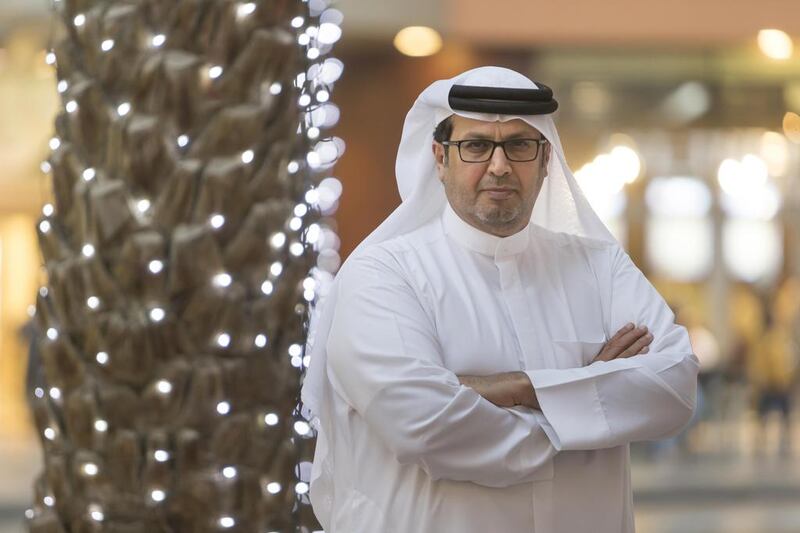ABU DHABI // One in five teenage Emirati girls has encountered family or social problems as a result of a bad experience on social media, a study found.
Youngsters are leaving themselves exposed to blackmail and even identity theft after freely posting photos or exchanging personal information online.
The three-month survey involved 62 Emirati female students between the ages of 15 and 18 from across the country.
“The problem with many young people online is they do not know what the limit is and what the consequences are,” said Dirar Al Falasi, director of Watani Al Emarat Foundation.
“Of particular concern were the increasing number of online blackmail incidents. There were some situations where the girls’ online pictures were taken and used against them to extort money – again it comes down to providing them with awareness,” he said.
Online blackmail cases in Dubai increased by 275 per cent in the past two years with 300 reported last year, up from 212 in 2014 and 80 in 2013.
Working in tandem with Al Ameen – a collaboration between the Telecommunications Regulatory Authority and Dubai Police to spread awareness about social media privacy – the foundation lectures students about the potential pitfalls of social media use and the country’s internet laws.
However, Mr Falasi said all of its hard work can be quickly undone if not supported at home.
“There is a saying in Arabic ‘one hand cannot clap’ – I might be doing my share but a parent or an uncle could do something wrong and ruin everything,” Mr Al Falasi said.
Parents should not give their children access to technology and the web without restrictions, he said. “The parents don’t know how powerful or how dangerous it is.”
An Emirati who founded a programme to instruct youngsters on how to use social media responsibly agreed parents had to play their role.
Hedaya Al Ali, 34, said her 62-year-old father follows her social media accounts and often offers his opinion on what he sees.
“The fact he is on there is always on my conscience when I post things. There has to be supervision,” said the nursery teacher who started the initiative after witnessing her 12-year-old brother commenting on Snapchat about TV programmes without understanding the subject matter.
But Ms Al Ali said the onus was on the child to steer clear of topics they knew little about that could lead down a negative path.
She said the programme’s goal is to teach children to take responsibility for everything they post or comment on.
While teaching them to understand the negative aspects of social media, such as being a source of or conduit for rumours and sharing an opinion on topics they are unfamiliar with, Ms Al Ali said it was important to show them how to create a positive online environment.
“Young people have ideas and opinions and they want to share them with the world, but they have to know they are the ones painting the picture and it is important to create it in a positive light.”
Student Aysha Hasan said the lessons she learnt at home and at school about navigating the web were invaluable.
“Without them, I would have been lost and it would have been a lot harder,” said the 15-year-old Emirati.
Before receiving her first computer at the age of 7, the 11th grader said her mother set parental controls and sat her down.
“She told me to not stray on the internet and get too deep into the web, using it only for the projects I needed.”
Aysha’s mother would also have her watch programmes about the proper use and possible perils of social media.
Lessons in the classroom about hacking, cyber bullying, and online blackmail complemented her mother’s teachings and led to Aysha steering clear of the negative aspects of social media.
“But it not easy to stay quiet when someone is commenting negatively about your religion. There are a lot of people who find it easier to offend, be racist or bully online rather than in person,” she said.
Mr Al Falasi said the Foundation would expand the study in future to include boys and a greater number participants.
tsubaihi@thenational.ae






